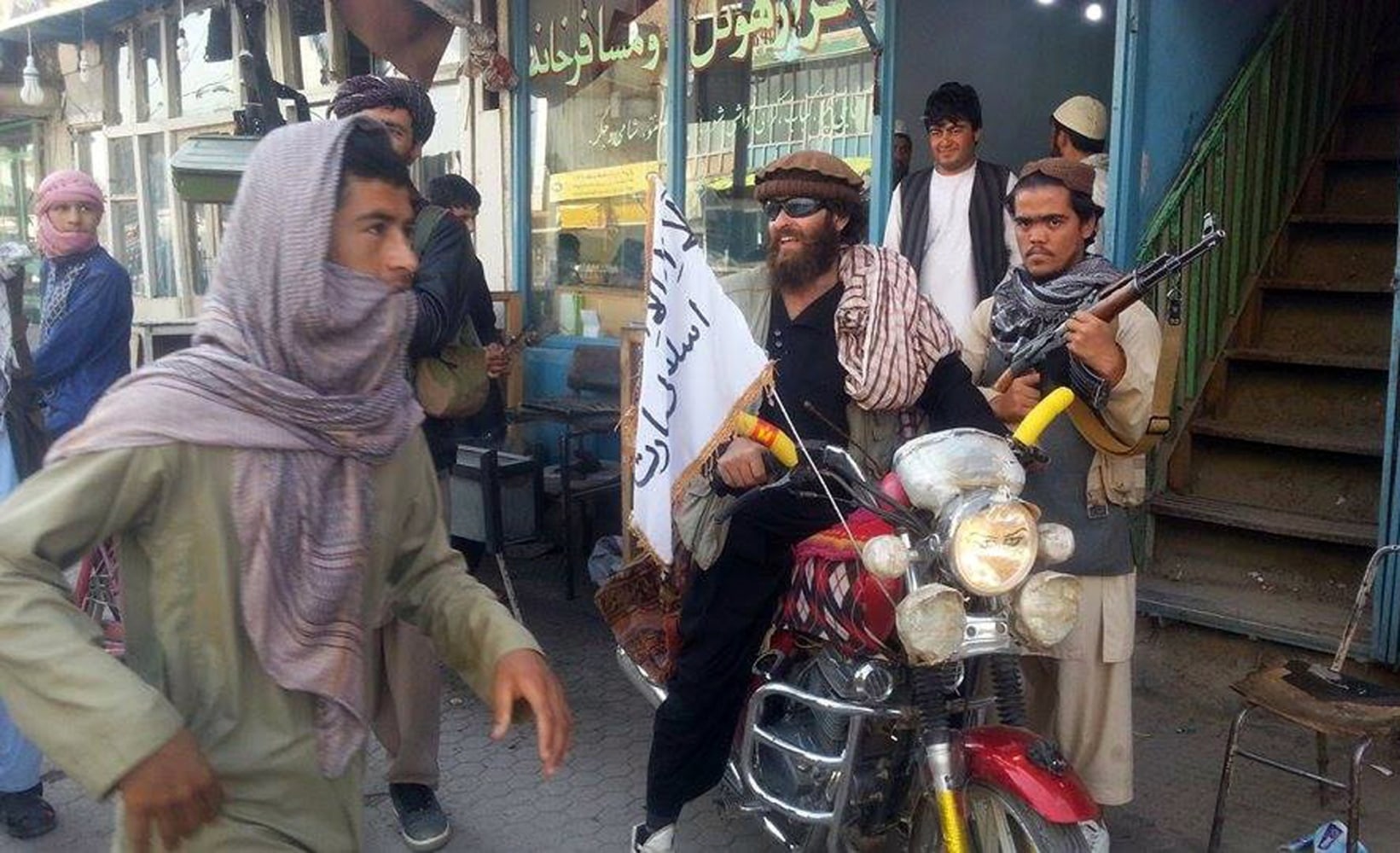The Daily Journalist.

Kunduz, in northern Afghanistan, is the city that time and time again has been captured in the hands of the Taliban. It was their most resisted stronghold in 2001, but 14 years later, once again it has been seized by the Taliban.
The objective of the Afghan army is to overthrow the Taliban white flag waving in the central square for two days. Afghan troops have waged assaults again today after living unsuccessfully the first chapter of this terrestrial counteroffensive that had more than 5,000 US troops.
Con air support, military forces far exceed the thousand insurgents entrenched in the city. In the first attempt, supported by reinforcements brought from Kabul, they have advanced from the airport of Kunduz which had fallen last night after the Taliban conquest. A US air attack on the outskirts of the city has left twenty dead insurgents, as reported by local television Tolo.
In the streets they have experienced shootings and Afghan authorities have claimed to have regained control of several public buildings including the prison and police headquarters. “The enemy is weak and the security forces are progressing well,” said the media Defence Minister, Mohammed Massom Stanekzai.
However, late at night there have been heavy fighting near the airport. With the city under their control, insurgents have burned government buildings while throwing messages of peace and tranquility to the people of Kunduz, assuring that there would be reprisals against civilians who join the enemy.
A video posted on social networks shows Taliban official vehicles boasting and loudly promising that Sharia will be implanted soon. The mood among the Taliban is high, as shown by the jubilant Taliban spokesman, Zabihullah Mujahid, was quoted by Reuters: “This is just the beginning, our goal is Kabul.”
The neighbors, afraid to leave their homes, have said to local media that the city lacks water and electricity and have begun the first lootings. Hospitals are overwhelmed with hundreds of injured, according to Doctors Without Borders.
In fact, President Ashraf Ghani said that the Taliban are using civilians as “human shields”. On the day of their anniversary at the head of the Afghan government, Ghani has appeared on television to calm the population before the Taliban conquered the city after past 14 years. “I want to assure my fellow citizens that the situation is under control,” said the president, who has an unanimus vote of confidence in the armed forces.
Analysts agree that Kunduz, has been a key victory for the Taliban and moral blow that has been dealt with the strategy of the president, who came to power under the promise to improve the country’s security. His last attempt at dialogue failed last summer. “It is to consider whether this government of national unity is still useful because it shows weakness,” pointed Ambrish Dhaka, an expert on international relations at the University JNU Delhi.
With a battered Ghani has emerged Mullah Akhtar Mansoor, the new leader of the insurgents, presented to the world with the greatest success since dropping the Taliban regime. Although few believe that he achieves to long maintain control of the city, Kunduz has been an unparalleled boost to the internal disputes that caused his election as successor to his late counterpart Mullah Omar.
Mansoor knew the importance of winning Kunduz, on the road to Tajikistan, making it a key transport point between the two countries, as well as hub of drug trafficking and weapons in northern Afghan provinces.
Two previous attempts to capture the city failed. How they have succeeded the third time? The Stanekzai minister has indicated that the Taliban benefited from local support to take over the city of 300,000, not to mention the ubiquitous accusing foreign involvement.
He also acknowledged that the Afghan intelligence service had advance information about a possible attack, so wanted not ruled out Taliban infiltrates. The Defense Ministry also blamed the fall of Kunduz to a lack of coordination among security forces, which has rekindled the debate on whether the Afghan army can afford only the complex situation in which a country is heading, with the growing sprouts that involve the rise of the Islamic State in the country.
“The army might not cope with the problem and the price will be very high for the population,” the analyst pointed Dhaka. NATO ended its combat mission nine months ago; on the ground are about 4,000 troops, in addition to the nearly 10,000 US maintains with the main objective to train and assist the Afghan armed forces.
In front, an insurgency that is not afraid of anything.


